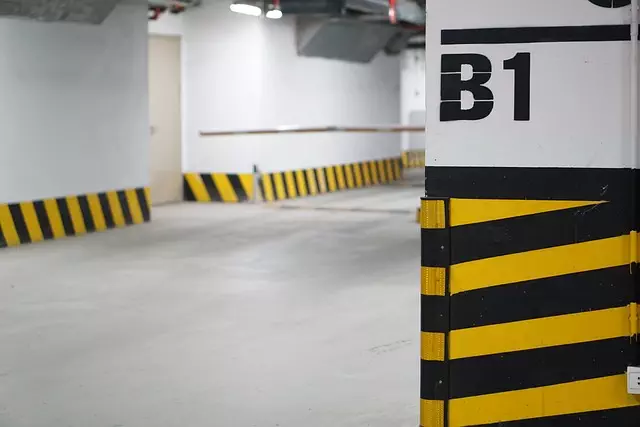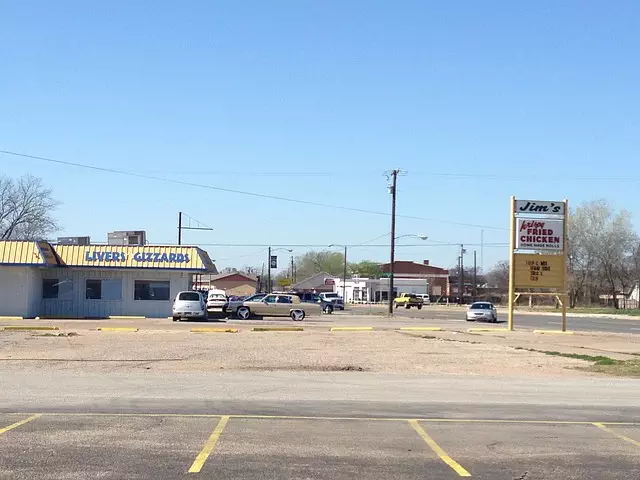Toledo, Ohio has become a leader in sustainable infrastructure by incorporating recycled asphalt into its asphalt parking lot construction. This innovative approach not only saves costs but also significantly reduces environmental impact by conserving resources and minimizing carbon emissions associated with traditional asphalt production. The city's initiative adheres to strict construction standards, ensuring durability and safety while leveraging local resources. Toledo's eco-friendly practice has proven effective, with recycled asphalt surfaces enduring heavy traffic and supporting the city's sustainability goals. This method has been recognized for its environmental advantages and cost efficiencies, setting a precedent for other municipalities. The use of recycled materials in Toledo Ohio asphalt parking lot construction is a testament to the city's commitment to sustainable development without compromising on infrastructure quality. Regular maintenance, including seal coating and crack sealing, is essential for maintaining the longevity of these environmentally friendly surfaces, which contribute to the local economy and environmental conservation efforts.
Exploring the eco-friendly advancements in infrastructure, this article delves into the integration of recycled asphalt in Toledo Ohio asphalt parking lot construction. Highlighting its dual benefits for both economy and environment, we examine how this innovative approach is reshaping local building practices. Through detailed exploration of the processes, case studies, and best practices, readers will gain insights into the long-term performance and maintenance of these sustainable lots, making a compelling case for their adoption in Toledo, OH.
- Maximizing Sustainability: The Role of Recycled Asphalt in Toledo Ohio Asphalt Parking Lot Construction
- Economic and Environmental Benefits of Using Recycled Asphalt Materials in Parking Lot Projects
- The Process of Incorporating Recycled Asphalt into Modern Parking Lot Construction in Toledo, OH
- Case Studies: Successful Implementation of Recycled Asphalt in Local Toledo Ohio Parking Lots
- Best Practices for Mixing and Placing Recycled Asphalt in Asphalt Parking Lot Construction
- Long-Term Performance and Maintenance Considerations for Recycled Asphalt Parking Lots in Toledo, OH
Maximizing Sustainability: The Role of Recycled Asphalt in Toledo Ohio Asphalt Parking Lot Construction

In recent years, Toledo, Ohio has been at the forefront of sustainable infrastructure development, particularly in the realm of asphalt parking lot construction. The city’s commitment to environmental stewardship is evident through the integration of recycled asphalt into its construction projects. This eco-conscious approach not only aligns with local and federal environmental regulations but also positions Toledo as a leader in green infrastructure. Recycled asphalt, sourced from reclaimed pavement, offers a dual benefit: it reduces the demand for virgin materials and lessens the carbon footprint associated with traditional asphalt production and transportation. This initiative is crucial in maintaining the integrity of Toledo’s urban landscape while promoting a circular economy within its construction industry.
The use of recycled asphalt in Toledo Ohio asphalt parking lot construction offers a cost-effective, durable solution that contributes to the longevity and safety of these facilities. The city’s dedication to incorporating this sustainable material ensures that each parking lot project not only meets stringent quality standards but also supports the local economy by utilizing resources already within the region. Furthermore, the adoption of recycled asphalt has a positive impact on the lifecycle of pavements, as it maintains the structural integrity of the parking lots and reduces the need for frequent repairs or replacements. This approach to asphalt parking lot construction in Toledo underscores the city’s dedication to sustainability and innovation in infrastructure development.
Economic and Environmental Benefits of Using Recycled Asphalt Materials in Parking Lot Projects

Incorporating recycled asphalt materials into asphalt parking lot construction offers a multitude of economic and environmental advantages that are worth harnessing, particularly in regions like Toledo, Ohio. From a financial standpoint, utilizing recycled materials significantly reduces the cost associated with new asphalt production. This cost-effectiveness is a boon for property owners and contractors involved in parking lot projects, as it translates into direct savings on construction expenses. The process of reclaiming old asphalt not only extends the life of existing resources but also minimizes the need for raw material extraction, thereby lowering operational costs for businesses specializing in asphalt parking lot construction.
Environmentally, the benefits are equally compelling. Recycled asphalt pavement (RAP) reduces the environmental footprint of new asphalt parking lot construction by lessening the carbon emissions that result from the production and transportation of virgin materials. RAP incorporates materials that would otherwise contribute to landfill waste, effectively diverting tonnage from disposal sites. The energy required to produce recycled asphalt is substantially lower compared to producing new asphalt, which contributes to a reduction in greenhouse gas emissions. Moreover, the use of RAP in Toledo, Ohio, asphalt parking lot construction ensures that each project embodies sustainable practices and promotes environmental stewardship. This approach not only supports local recycling initiatives but also aligns with broader environmental goals, making it a responsible choice for both new constructions and maintenance of existing lots.
The Process of Incorporating Recycled Asphalt into Modern Parking Lot Construction in Toledo, OH

In Toledo, OH, the process of incorporating recycled asphalt into modern parking lot construction is a testament to sustainable infrastructure development. The project commences with the removal of existing asphalt surfaces, which are then sorted and processed at local recycling facilities. Here, the materials undergo crushing and mixing with new aggregates, binders, and additives to meet the specifications required for high-quality parking lot construction. This recycled material serves as the base layer in the construction process, providing a sturdy foundation that supports both traffic and environmental sustainability.
The actual construction involves laying down this recycled asphalt mixture, followed by compaction and levelling to ensure a smooth and durable surface. Advanced technology and equipment are employed to create a uniform and resilient parking lot that can withstand the elements and frequent use. The use of recycled materials not only extends the lifespan of the parking lot but also significantly reduces the environmental impact associated with traditional asphalt production. In Toledo, OH, this eco-friendly approach to asphalt parking lot construction is becoming increasingly prevalent, reflecting a commitment to sustainability while maintaining high standards in infrastructure development.
Case Studies: Successful Implementation of Recycled Asphalt in Local Toledo Ohio Parking Lots

In Toledo, Ohio, the implementation of recycled asphalt in parking lot construction has been met with significant success, showcasing innovative approaches to sustainable infrastructure development. Local contractors have embraced the use of recycled asphalt materials, which not only reduce the environmental impact of construction but also offer cost-effectiveness and longevity. A notable case study is the revamping of the downtown Toledo parking lots, where recycled asphalt was utilized to create durable surfaces that have withstood the test of time and heavy traffic. This initiative has led to a reduction in landfill waste and has contributed to the city’s goals for sustainable development. The project’s success is reflected in the consistent performance of these parking lots, which continue to provide safe and reliable spaces for vehicles.
Furthermore, the adoption of recycled asphalt in Toledo’s parking lot construction has garnered attention from both local authorities and environmental organizations. The city’s commitment to using sustainable materials has set a precedent for other municipalities, demonstrating that environmentally friendly practices can be seamlessly integrated into construction projects without compromising on quality or durability. The positive outcomes of these initiatives have been quantified through long-term performance assessments, revealing that recycled asphalt pavements perform similarly to those made from virgin materials, while also offering significant environmental benefits and cost savings. This has not only led to the widespread adoption of recycled asphalt in Toledo’s parking lot construction but has also positioned the city at the forefront of eco-friendly infrastructure development in the region.
Best Practices for Mixing and Placing Recycled Asphalt in Asphalt Parking Lot Construction

Incorporating recycled asphalt into new asphalt parking lot construction in Toledo, Ohio, or any region, is both cost-effective and environmentally friendly. When mixing recycled asphalt for such projects, it’s imperative to adhere to strict quality control measures. The raw materials, including the recycled asphalt pavement (RAP), aggregates, and bitumen, should be sourced from reputable suppliers to ensure consistency and performance of the final product. Proper blending techniques are essential; mixers must be calibrated correctly to achieve a homogeneous mixture that optimizes the bindership between the RAP and new materials. The temperature of the asphalt mix should be carefully controlled throughout the mixing process to maintain optimal viscosity for compaction and adhesion.
During placement, it’s crucial to use well-maintained pavers and compaction equipment. The recycled asphalt layers should be carefully laid and compacted in multiple lifts, allowing for thorough saturation and proper aggregate interlock. Each lift must be compacted to a specified density, typically using a dynamic compactor or a shear compactor, ensuring the final surface is both durable and level. Edge preparation and control joint placement are also critical to prevent premature failure due to edge cracking or thermal stresses. Adherence to these best practices not only extends the lifespan of the asphalt parking lot but also minimizes environmental impact and promotes sustainability in Toledo, Ohio, asphalt parking lot construction.
Long-Term Performance and Maintenance Considerations for Recycled Asphalt Parking Lots in Toledo, OH

When constructing asphalt parking lots in Toledo, OH, utilizing recycled materials can offer a sustainable and cost-effective solution that aligns with modern environmental and economic imperatives. The long-term performance of recycled asphalt in such constructions is influenced by several factors, including the quality of the recycled material used, the skill and precision of the construction process, and the climatic conditions prevalent in the region. In Toledo, the variability in weather patterns, with harsh winters and hot summers, poses unique challenges that must be considered during the design and implementation phases to ensure durability and longevity.
Maintenance considerations for recycled asphalt parking lots in Toledo are critical to their lifecycle. Regular maintenance, such as seal coating, crack filling, and drainage management, is essential to protect the integrity of the lot. These practices not only enhance the aesthetic appeal but also safeguard against water damage, which can significantly reduce the lifespan of an asphalt parking lot. It is important for property owners to work with experienced contractors who specialize in Toledo, OH asphalt parking lot construction and adhere to best practices for maintenance to ensure the optimal performance of their recycled asphalt surfaces. This proactive approach not only extends the life of the parking lot but also contributes to sustainable development and cost savings over time.


